Problem-Solving Skills Normal Building Vocabulary Worksheets for Ages 4-7
5 filtered results
-
From - To
Enhance your child's vocabulary and problem-solving skills with our engaging worksheets designed for ages 4-7. These fun and educational activities help young learners build a strong foundation in reading and critical thinking. Each worksheet is thoughtfully crafted to introduce new words while teaching children how to approach and solve problems systematically. Perfect for early grade students, these printable resources encourage independent learning and boost confidence. Give your child the tools they need for academic success and lifelong skills. Explore our collection and set your child on the path to becoming a proficient reader and effective problem-solver.
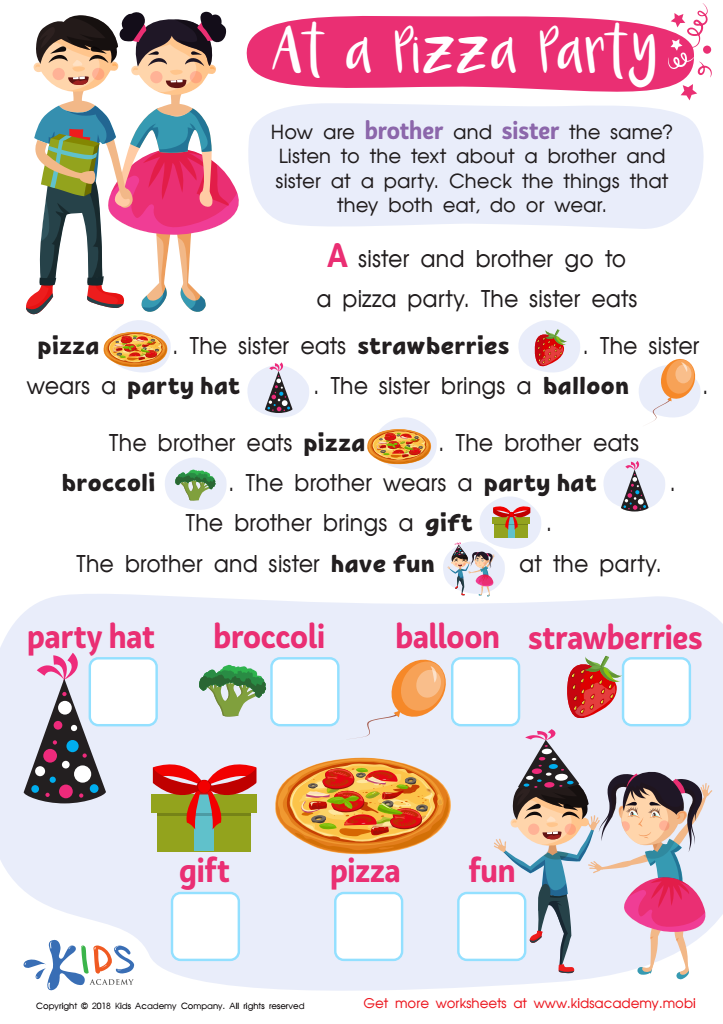

At a Pizza Party Worksheet
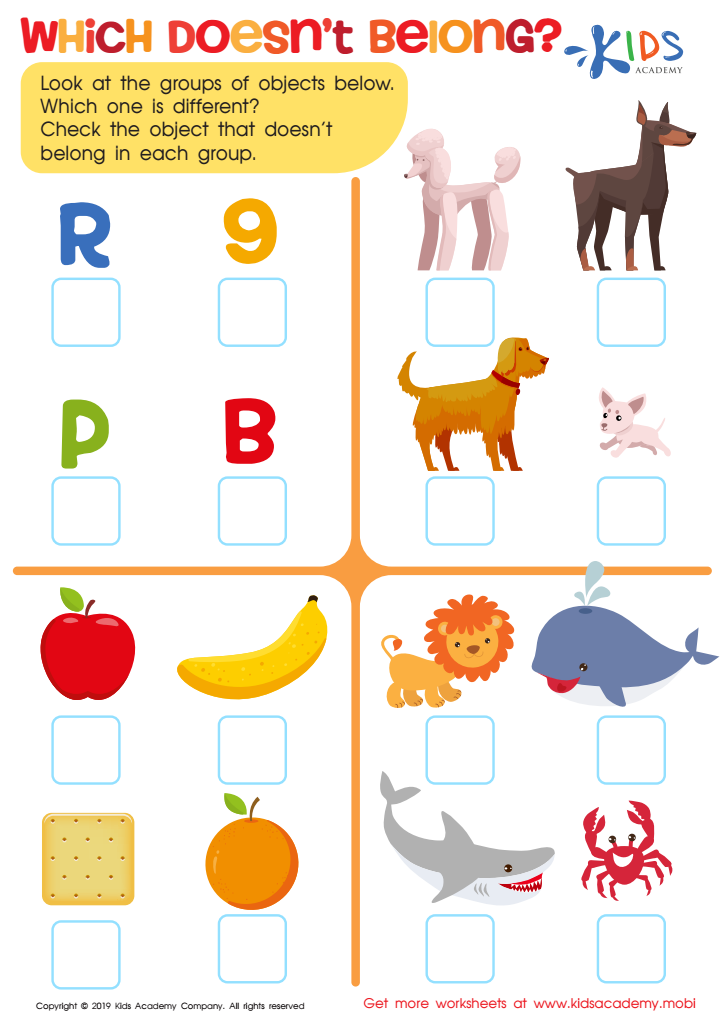

Which Doesn't Belong? Worksheet
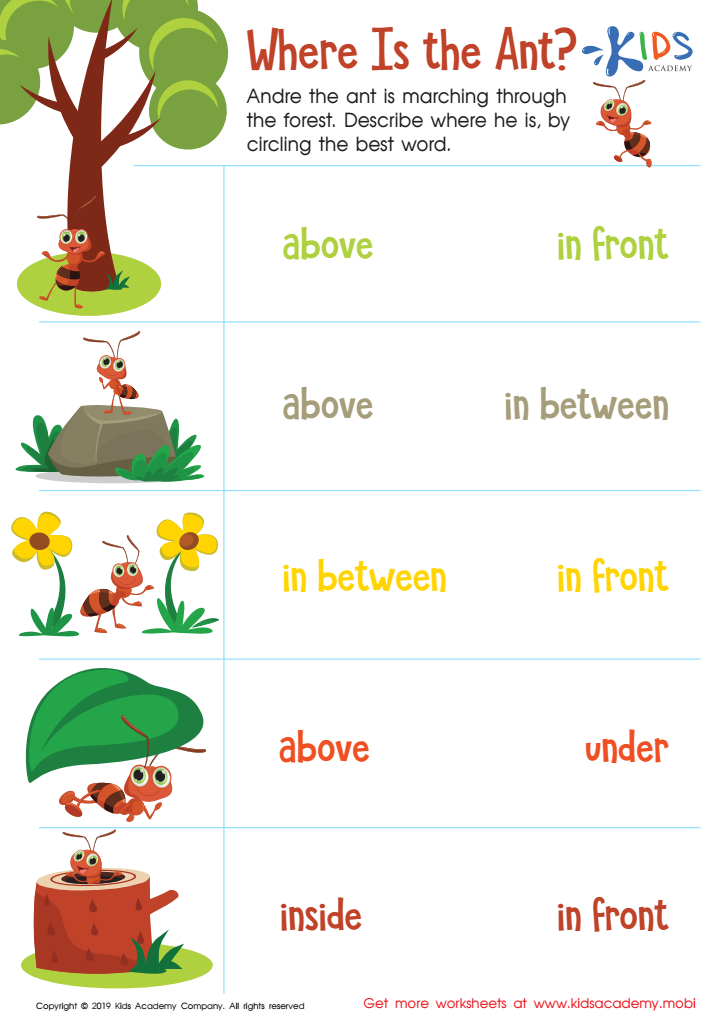

Where Is the Ant? Worksheet
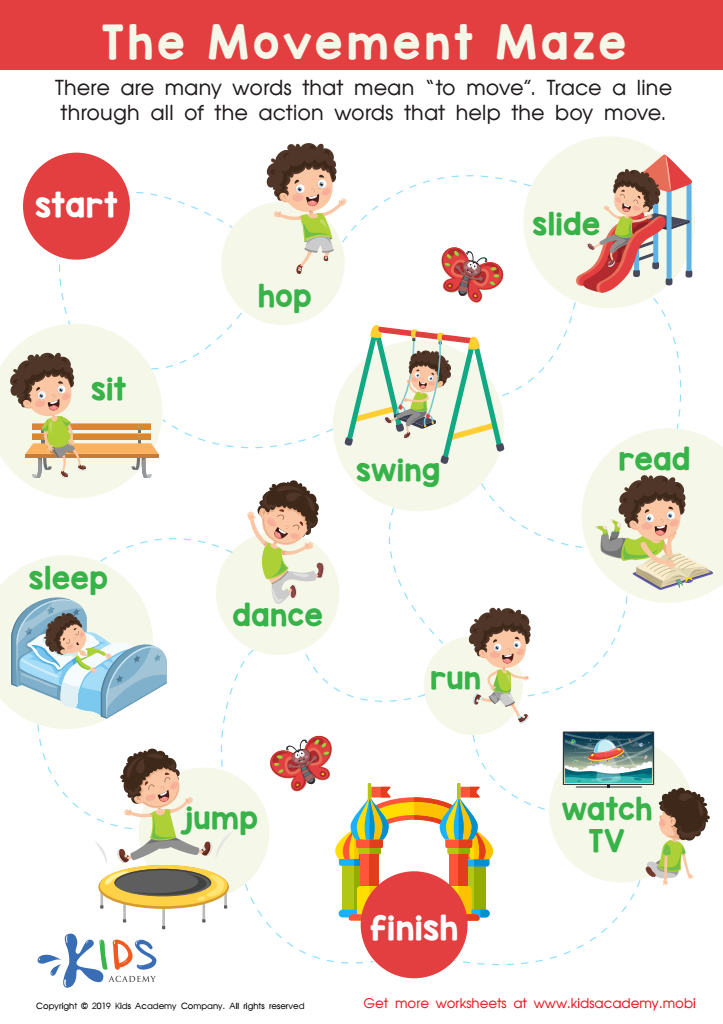

The Movement Maze Worksheet
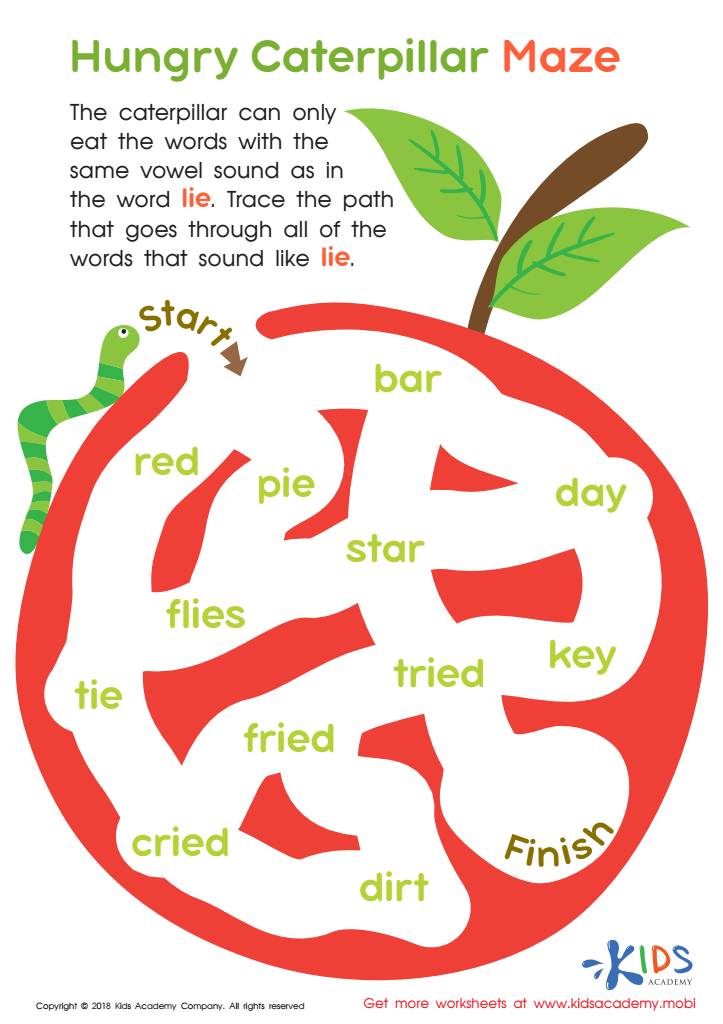

Hungry Caterpillar Maze Worksheet
Problem-solving skills and a robust vocabulary are essential for the developmental growth of children aged 4-7, and here’s why they merit attention from both parents and teachers:
Firstly, problem-solving capabilities empower children to handle challenges, think critically, and develop resilience. When children can confidently face and resolve issues, whether it be in social interactions or academic tasks, they're better equipped for lifelong learning and success. For instance, a child who can figure out how to share toys or navigate a misunderstanding with a friend is developing important social and cognitive skills.
Secondly, vocabulary development is foundational to reading, writing, and overall communication. A rich vocabulary enhances comprehension and expression, appreciating nuances in meaning and being effective conversationalists. When children understand words and their usage, they can express their needs, feelings, and thoughts more clearly. This improved communication contributes to better academic performance and stronger interpersonal relationships.
Combining problem-solving skills with a growing vocabulary fortifies cognitive abilities, emotional intelligence, and social interactions. By nurturing these competencies, parents and teachers lay a solid foundation for academic achievement and personal growth, creating a balanced, confident, and capable individual who can thrive in diverse situations and environments.

 Assign to My Students
Assign to My Students












.jpg)













